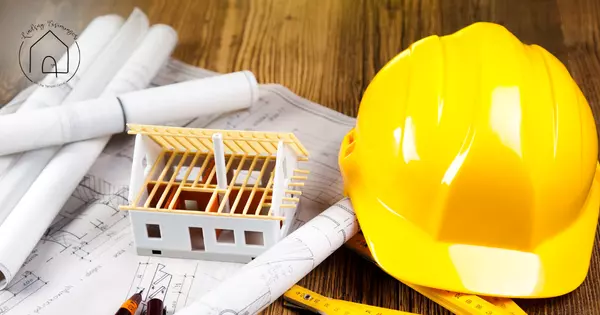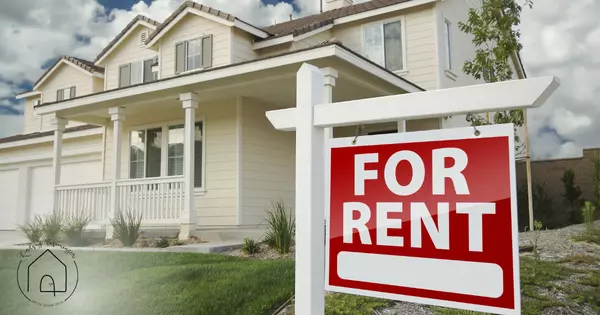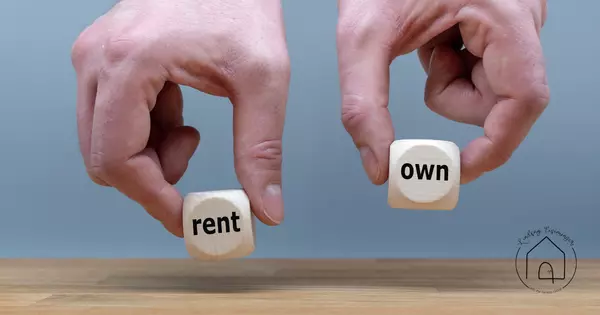Dream Home Checklist
Pre-approved? Know what you can afford? That means it is time to start house hunting! The hunt for your dream home can stall quickly if you aren’t sure what your “dream” looks like.
It’s easy to talk in generalities about wanting a “big” house or an “older” home, but in order to have a more specific real estate search, you must think specifically about the features you want or need. Will your “big” house be 2,400 square feet or 5,000? When you say “older” home, do you mean one built pre-1950, or pre-2000?
Before continuing on the search, sit down and make a list of your needs and wants — and yes, those are two different things. Think about the things that are needed (amount of bedrooms, yard space, garage, etc.) and the rest of the things that would be nice, but you probably could live without it (pool, etc.)
It is important to note that your lists will most likely change as you learn more about your housing options. Location, such as proximity to the beach, may start as a priority, but once you see the size of ocean-front homes in your price range, the drive to the beach may be more reasonable. Unless you have an unlimited or extremely flexible budget, there will probably need to be compromises along the way.
Below are tips and questions to help you figure out what you do and don’t like about your current home, so that you can find more comfort and pleasure in your dream home. Take the time to rank specific home features in lists such as “Must Have,” “Like to Have,” and “Don’t Care.”
1. Know your finances
Having your finances in order before house-hunting can make all the difference in a competitive market. Determining your budget and how much financial wiggle room you have can help clarify your must-haves.Ask yourself:
Are you pre-approved for a mortgage?
What’s your price range?
How much do you have saved for a down payment? What about future repairs?
Are you willing to do extra renovations or do you want a turnkey property?
2. Consider your current lifestyle and plan for the future
You may have the perfect home in mind, or you may not even know where to start when imagining your future place to live. It can help to consider your basic needs and non-negotiables in a home. Consider where you live now and what your favorite things are and what you need to change. Think about the following:
You need space for a future nursery or a home office
You need any special features for your pets like a fenced-in yard
You need wheelchair access or limited stairs
You need a space for a car or is street parking sufficient
Walkability is important to you
You plan on changing jobs in the next 1-2 years
3. Pick your preferred home style and type
Once the basics are figured out, the groundwork for determining what features you want in a house is easier. Consider the different types of houses on the market, the neighborhoods you would like, and think of keywords that can help narrow your search. Ask yourself these questions:
How many stories do you want?
Do you want to live in a townhouse, condo or single-family house?
Could you live in a historic home?
How many bedrooms?
How many bathrooms?
Want a guest room?
What type of flooring do you like?
What architectural styles do you like best?
What’s your favorite room, and what makes spending time there enjoyable?
If you have an outdoor space, do you enjoy spending time there?
Do you enjoy taking care of a yard or feel burdened by it?
4. Choose a location
Keep in mind that paint colors to refresh the home can be changed, extensions to increase your square footage can be added, but the location of the home can’t be altered.
When finding your dream home, it’s easy to get caught up in its features, but you should also consider your surroundings:
Do you prefer urban, suburban or rural?
What city do you want to live in?
Do you want easy access to highways or public transportation?
How important is the view?
Can you sleep easily with traffic noise?
Do you want to be involved in community activities?
Are there parks within walking or biking distance?
Do the property taxes and/or HOA fees fit your budget?
5. Get to know the neighborhood
Think you’ve found the perfect home in the perfect area? Before buying, it’s still always a good idea to explore the neighborhood and ask yourself the following:
Are you happy with your neighborhood?
Are there enough activities going on around you — or too many?
Are you happy with your commute?
Do you have to travel far for basics such as groceries or a doctor’s appointment?
6. Document your visit
When it’s time to take your home tour, check the features against the checklist you made. Do you need to re-evaluate any of your must-haves? Get a feel for the home and consider anything you may have left off of your list. Remember, paint can be replaced and staged furniture will change, but there are aspects that can’t change so easily.
Is there enough space or too much space?
Where could you use more space?
How would you describe the layout?
Do you like the fixtures and finishes?
Are you happy with the windows (enough natural light, well-placed, too sunny)?
Does the home have curb appeal?
Does the home have adequate parking?
Once you know what you’re looking for in a home, you’ll be ready to find the right agent to partner with for your search. Identifying your priorities will help you find the perfect property. Happy house hunting!
Buying a House After Bankruptcy?
Securing a home loan and buying a house after bankruptcy may sound like an impossible feat. Blame it on all those Monopoly games, but bankruptcy has a very bad rap, painting the filer as someone who should never be loaned money. The reality is that of the 600,000 Americans who file for bankruptcy every year, most are well-intentioned, responsible people. Life has thrown them a curveball, however, that has left them struggling to pay off their past debts. Sometimes, filing for bankruptcy is the only way out of a crushing financial situation, and taking this step can really help cash-strapped individuals get back on their feet. And yes, many go on to become first-time home buyers or buy a home eventually, despite the challenging credit score that results from bankruptcy. But how? Being aware of what a lender expects after a bankruptcy will help you navigate the mortgage application process efficiently and effectively. Here are the steps on buying a house after bankruptcy, and the top things you need to know:
Types of bankruptcy: The best and the worst
There are two ways to file: Chapter 7 bankruptcy and Chapter 13 bankruptcy.
With Chapter 7 bankruptcy, filers are typically released from their obligation to pay back unsecured debt—think credit cards, medical bills, or loans extended without collateral.
With Chapter 13 bankruptcy, filers have to pay back their debt. However, the debt is reorganized and a new repayment schedule established that makes monthly payments more affordable.
Since Chapter 13 filers are still paying back their debts, mortgage lenders generally look more favorably on these consumers than those who file for Chapter 7. A bankruptcy attorney can help determine if Chapter 7 or Chapter 13 makes the most sense for your specific situation. Unfortunately, both Chapter 7 and Chapter 13 bankruptcies will adversely affect credit scores. But don’t give up!
How long after bankruptcy should you wait before buying a house?
Most people applying for a loan will need to wait two years after bankruptcy before lenders will consider their loan application. That said, it could be up to a four-year ban, depending on the individual and type of loan. This is because lenders have different “seasoning” requirements, which is a specified amount of time that needs to pass.
Fannie Mae, for example, has a minimum two-year ban on borrowers who have filed for bankruptcy. The FHA loan, on the other hand, has a minimum one-year ban in place after a bankruptcy. These bans, or seasoning periods, are typically shorter with government-backed loans (such as FHA or VA loans) than with conventional loans. The time is measured starting from the date of discharge or dismissal of the bankruptcy action. Generally, the more time between debt discharge and the loan application, the less risky a once-bankrupt borrower looks in the eyes of a mortgage lender.
How to reestablish credit after bankruptcy
Once the bankruptcy process is over, reestablishing and maintaining creditworthiness is key to your financial health. Lenders will be looking for zero delinquencies post bankruptcy. While you work to build new credit, don’t go overboard opening an extensive number of accounts, as this will work against you. Usually, opening just a couple of revolving credit lines and paying them in a timely manner over the course of 12 months helps to increase credit scores back to an acceptable level.
What to do before you apply for a mortgage
Before you apply for a mortgage loan, check your credit score by getting copies of your three main credit reports, which detail the financial transactions (and transgressions) from your past. You will want to check these credit reports for errors, such as a credit issue that you resolved but that is not reflected in your report. In some post bankruptcy cases, errors continue to report negatively on credit reports. These mistakes will drag down your overall credit score and reduce your chances of getting approved for the mortgage. So if you spot mistakes on your credit reports, work with the credit bureaus to correct the information they include. This can boost your credit score significantly, and may even tip the scales on your home loan approval. Mortgage lenders want to see any movement from bad credit to good credit, so don’t leave any of your hard-earned progress on the table.
Buying a house after bankruptcy: Ways to woo a lender
To start the mortgage process, lenders require a detailed letter explaining why you needed to file for Chapter 7 or Chapter 13 in the first place. Ideally, the bankruptcy would have been caused by an extenuating circumstance beyond your control—such as the death of an income-contributing spouse, the loss of employment, or a serious illness. In other words: A lender likes to see that you were hit with hard times that had a significant negative impact on your expenses or income, and made it impossible to meet your financial obligations. What a lender won’t want to see is someone with a die-hard shopping habit or a careless attitude toward paying credit cards on time. If that’s you, you’ll have to prove you’ve changed.
Whatever the reason you filed for bankruptcy, lenders will need to properly document your extenuating circumstances, so be prepared to provide proof detailing your life event. Medical bills, a doctor’s note, a death certificate, or severance paperwork are all acceptable evidence that prove to lenders that you are a safe bet worthy of a home loan.
Questions To Ask When Buying New Construction
Buying new construction is a different process than buying your typical pre-built home. What’s included, what’s not, and what’s hidden in that massive contract depends on the builder that you use. As with any situation where you’re moving or about to spend a lot of hard earned money, it’s important to go in prepared – and that means asking the right questions.
The first interaction you’ll have with the builder – and in fact, the first several, at least – will be with the builder’s sales representative. These early meetings are your chance to ask all of the questions you might have regarding costs, labor, and other essentials that you need to know about before jumping in. Write your questions down before you go in so that you can be sure not to forget anything important, and don’t be shy about getting the answers that you need. This is a major purchase, and you don’t want any surprises later.
Not sure exactly what you need to be asking about? These 10 questions to ask when buying a new construction home will help get you started.
Is the lot cost included?
When you’re exploring new construction options, you’ll see that each plan comes with a base cost. This is the cost of the structure itself, as well as base interior and exterior features (we’ll get into those in a little bit). What may not be included is the cost of the land, so be sure to ask if the lot cost is figured into the base.
If the lot cost is included, ask if there are premium costs for certain lots. It’s possible that the base cost does include the lot, but the remaining lots in the development all have added costs for certain features that you can’t opt out of, such as look-out windows in the basement or wider yards. If the lot cost is not included, ask what it is (and whether there are additional premium costs) and factor those into the base price for the house.
How long will building take?
It’s important to know what you’re getting into timing-wise with a new construction build, particularly if you have a house to sell first or you’re going to be renting. While the building process is prone to delays and you won’t be able to get a finite schedule for how long the build will take, you’ll be able to get a general idea of what you can expect. Be sure to also ask if the build time includes the time it takes to get the permits, since those will typically take about 30-45 days to obtain.
What warranties are provided with the house?
Just because a home is brand new doesn’t mean that no problems will arise. Fortunately, most new construction homes come with one or more warranties that protect you in the event of a mishap early on, including a short term whole-house warranty and a longer structural warranty. Ask what the warranties include and how long they last. While you can always buy your own home warranty, you should expect that the builder will cover you in some way for at least the first several years.
What are the standard finishes?
Does a base cost look too good to be true? That might be because the builder is expecting you to spend big when it comes to finishes like flooring and countertops. Ask what types of finishes are included, and better yet, go through the model unit with the sales representative and have them point out what’s standard and what is an upgrade. You likely won’t meet with the design center until after you’ve gone under contract, so it’s important to figure out early what sorts of finishes and appliances you can expect to be included in the home’s base price.
Are you allowed to purchase your own appliances or materials?
Had your heart set on butcher block countertops but the builder doesn’t offer them? It’s possible that you may be able to purchase them yourself and then have the builder install them. Alternately, some builders won’t let you purchase your own materials, but they will let you bring in your own appliances, even on items that are included in the sale, like sinks and toilets. Keep in mind that, in terms of appliances, you probably will have to make some purchases on your own, such as washers, dryers, and refrigerators.
If you can bring in your own materials or appliances, will you get credits?
Let’s say the base price of your new construction home includes a kitchen sink worth $200, but you’d like to upgrade and purchase a sink on your own that costs $400. Will you get $200 off the purchase price for not using the sink that’s included in the base? Some builders offer credits for any upgrades or self-purchased materials or appliances, while with others you’ll just have to eat the cost of the originally included item. Credits are a nice touch, but they’re not usually standard, so it’s best not to go in expecting that you’ll get money off the base cost for purchases like these. In general, builders don’t like to lower the base cost, but if they do offer credits, that’s a win for you.
Is landscaping included?
Depending on the size of your yard, landscaping, including sodding and putting in trees and plants, can set you back several thousand dollars or more. Is that a cost you’ll have to factor in on top of the home purchase? Some builders include your basic yard work, while others leave you with unfinished land that becomes your responsibility to landscape (and generally must be completed in a set amount of time, per the contract). Ask whether landscaping is included, and if so, what that entails and if there is any sort of warranty on the materials so that if your newly sodded grass dies right away or some other mishap occurs you’re not responsible for fixing it.
Does the contract include a cost escalation clause?
New builds are notorious for last minute surprises, but you don’t want to be on the hook financially if it happens. A cost escalation clause allows the builder to charge you for any unanticipated costs that arise as a result of necessary labor or materials. So if lumber prices go up before the builder has purchased the materials for your flooring, or an unexpected delay adds a few weeks onto the build, you’re on the line for those costs. If you’d rather not deal with the stress of unanticipated costs, find a builder that doesn’t include a cost escalation clause in the contract.
Are there any homeowners rules or regulations?
Even if there is no homeowners association for the development, the builder may still set some guidelines as far as what’s allowed and what’s not on your property. For example, you may not be able to use a particular type of fencing or install a shed in your backyard. It’s better to ask this question early and know what to expect than to move in and find out that you can’t bring into fruition certain plans you had for the space.
Are there any financial incentives for using the builder’s preferred lender?
Some builders offer discounts on closing costs if you obtain your mortgage through a company that they have a relationship with. Ask if these sorts of financial incentives are offered, but don’t make your final decision about where to get your mortgage based on the discounts alone – you may still be able to find a better deal through other lenders. It’s still good to know however if there are benefits to working with the builder’s preferred mortgage company.
If it’s your dream to build a new construction house, go in to the process with an open mind and a clear idea of what you can expect. The more questions you can ask in the beginning, the less surprises you’ll potentially face in the future.
And as with any home purchase, be sure to have an attorney read over your contract so that you can be sure everything is fair and equitable. Some buyers of new construction prefer to go in to sales meetings with a real estate agent as well, though in my own experience, I didn’t find that to be necessary. Be smart, ask the right questions, and at the end of the day (or fine, year) you’ll end up with a beautiful home built just for you.
4 Factors Other Than Money To Consider in an Offer
Are you selling your home and reviewing several offers? Congratulations! You’re well on your way to getting as much as possible out of what is likely your largest asset. But when it comes to picking an offer, sometimes it’s important to take a step back and recognize that your bottom line shouldn’t be your only consideration. In many instances, the terms a potential buyer includes in the offer also play an important part. They can underscore how many hurdles you’ll have to clear to reach the closing table in a timely manner. So every seller should carefully review an offer—beyond the dollar amount—before settling on a buyer. To help you navigate all this, we’ve outlined four important factors that home sellers should look for in an offer. Here’s everything you need to know about choosing the best one.
Research your preferred financing method
As a seller, you probably have an offer amount in mind that you would like the buyer to meet or exceed. But remember, a buyer needs to prove that he can afford to make the purchase—no matter what numbers are thrown around in an offer. If the buyer intends to get a mortgage, there should always be a pre-approval letter included in an offer on their lender’s letterhead. And if a potential buyer makes a cash offer, ask for proof of funds before accepting it. This proof will usually come in the form of a bank or investment account statement. Each should show that the buyer has the funds necessary to complete the transaction.
Need to sell your home in a hurry? Then you may prefer an all-cash offer. This type of offer usually involves less risk and a shorter escrow period as cash eliminates waiting for a buyer’s full mortgage approval. But seller beware: All-cash buyers have negotiation power. And they will generally want something in return for bringing a bag of money to the sale. For instance, they could offer you less than the asking price. So be sure to weigh the cons against the pros before accepting an all-cash offer over a buyer with a mortgage.
Look for a larger earnest money deposit
Next, you may want to pick an offer with a sizable earnest money deposit, also known as a good-faith deposit. This is a sum of money that a buyer entrusts to the seller’s brokerage firm to prove that he is serious about purchasing the home. A deposit that’s worth 1% to 2% of the sale price is normal, but the higher the deposit, the stronger the offer. The buyer’s earnest money deposit goes toward the down payment if they eventually close on the home. On the other hand, if the buyer breaks the contract and walks away from buying the home, you can potentially keep the deposit as a consolation.
Consider fewer contingencies
In real estate, contingencies are benchmarks buyers set that need to be met for the transaction to continue moving forward. For example, many buyers will want to include an inspection contingency in the purchase contract. This means the buyer will need time to have your home inspected. And if any issues are found, a buyer might ask you to make repairs before he will close on the home. With an appraisal contingency, a satisfactory appraisal of your property must be conducted. If the appraisal doesn’t match the agreed-upon price of the home, you and the buyer will have to reach a new number before settlement. The caveat here is that anytime a contingency can’t be satisfied, the buyer has a chance to walk away from the purchase with his earnest money deposit in hand. Obviously, from a seller’s point of view, the fewer chances the buyer has to exit the transaction, the better. With that in mind, it’s a good idea for you to select an offer that has the fewest contingencies from the start. Choosing an offer with minimal contingencies is just as important as the sale price. That’s why cash offers are often accepted, even at lower sales prices. Sellers see a cash offer as removing a lot of the risk of the transaction falling apart due to a buyer’s inability to get financing or the appraisal value coming in below the sale price.
Opt for an ideal closing timeline
Finally, consider your optimal timeline for heading to the settlement table. Moving out is a lot of work, especially if you’ve lived in the home you’re selling for a while. To that end, you’re going to want to ensure that you choose an offer with a closing date that suits your needs. Timing is everything. While a quick closing is desirable to many sellers, some need more time to move. In that case, even an offer that has a lower sale price may be more desirable if the timing works better for them.
Why Credit Checks During Closing Are Important
You've found your dream home. After months of searching, you're finally closing on the house that you've wanted for so long. The last thing you want to do is take any action that would interfere with the closing of your home. Since the start of your home search, your agent has probably told you time and time again not to do anything that would impact your credit score, like opening a new line of credit or making a large purchase.
While this makes sense during the approval process, you may wonder why it is key to keep your credit in check until after closing. Here is an explanation of the 2 credit checks performed during the home-buying process and why it is important to maintain your credit from start to finish.
Pre-Approval Credit Check
To get a loan to purchase a home, you'll go through a pre-qualification process. You'll let your potential lender know a variety of financial information, from your credit score and employment to your marital status, as well as any number of factors that can impact your qualification. With this self-reported information, you can then be pre-approved. After that, lenders will verify the information you've provided and this is when they will pull your credit history. It is important that what you've reported matches the credit information pulled by the lender - which is why you shouldn't miss any payments or open new cards during this time. Lenders offer approval based on a risk assessment, and you do not want them to think that you are a risk.
Credit Check at Closing
The main concern of the lender is the risk you pose to them. Because it can take time for an offer to be accepted, your lender may pull a second credit check while waiting for your loan to pass underwriting. This is to ensure your credit hasn't changed since the initial credit check. If you took out a loan or created massive credit debt, you could change your debt to income ratio and your lender could decide you are too risky to loan to. This is why it is so very important to keep your credit in check before, during, and after the home-buying process!
When Should You Invest In Rental Properties?
If you are considering becoming a property investor, you may wonder why you should buy a rental and what indicators to look for when trying to find a property. Here are some signs to look for if you are on the fence about investing in a rental that indicate it is a great time to buy!
Low Interest Rates
When mortgage rates drop, it is much easier to make a property produce income. The best place to figure out what kind of interest rate you will get for an investment property is with a lender. Check in with them to figure out how to start the process, and contact an agent to help you start viewing potential properties.
Home Equity
Check in with a local Realtor to see how much your current home is worth! Some investment properties require a high down payment, but low-interest rates, refinancing and knowing your home value can make a difference. For example, if you need to borrow 10%, many homes in good markets can appreciate 10% of their value in just a year, depending on the condition and the location. Chat with a lender to see if you can qualify, and check in with your current mortgage company to discuss your plan.
Scarcity of Units
Do you live in a location where rental units are in high-demand? Maybe your city is growing and the demand for a space to rent is higher than the available properties. If that is the case, now is the best time to find a property to purchase for rental purposes.
Return Rate
If the rate of return in your county is growing, it might be a good time to invest in property. If there is a yearly increase, you can make significant gains over time.
Ultimately, talking to professionals can help you decide if now is the right time to invest in rental properties!
Down Payment Assistance Programs vs. Rent-to-Own
Is buying in your future? While the idea of rent-to-own seems reasonable, in practice, such arrangements may not be in a buyer’s best interest. In fact, the Federal Trade Commission cautions against rent-to-own deals, mostly because of the risks involved and the very real potential for scams.
“No credit? No problem!” — usually too good to be true.
Typically, renters pursue rent-to-own arrangements because they have poor credit or don’t have money for a down payment. (The down payment is money you pay upfront toward the purchase of a home. The rest of the home’s purchase price is covered by a home loan called a mortgage.)
The Federal Trade Commission states that renters can lose money on rent-to-own agreements that could instead have been saved for a down payment; it recommends you wait until you’ve saved and improved your credit.
Down payment assistance programs are worth a look.
If you’re thinking about rent-to-own because you lack funds for a down payment, you can apply for down payment assistance through one of the 2,000-plus programs offered throughout the country. Down payment assistance programs are typically run by state and local governments and nonprofit community groups. They’re designed for households who can afford monthly mortgage payments but don’t have enough money to put down toward the purchase. A real estate agent or mortgage lender may know about additional programs in your state or local area.
6 Ways Home Buyers Mess Up Getting a Mortgage
Getting a mortgage is, by general consensus, the most treacherous part of buying a home. Many homebuyers said they found the mortgage experience stressful and complicated. Even lenders agree that it’s often a struggle. If you’re out to buy a home, you have to be vigilant. To clue you into the pitfalls, here are six of the most common ways people mess up getting a mortgage.
1. Waiting until you can make a 20% down payment
A 20% down payment is the golden number when applying for a conventional home loan, since it enables you to avoid paying private mortgage insurance (PMI), an extra monthly fee of 0.3% to 1.15% of your total loan amount. But with mortgage rates where they are today—in a word, low—waiting for that magic 20% could be a huge mistake, since the more time passes, the higher mortgage rates and home prices may go!
All of which means it may be worth discussing your home-buying prospects with lenders right now. To get a ballpark figure of what you can afford and how your down payment affects your finances, punch your salary and other numbers into a home affordability calculator.
2. Meeting with only one mortgage lender
According to the Consumer Financial Protection Bureau, about half of U.S. home buyers only meet with one mortgage lender before signing up for a home loan. But these borrowers could be missing out in a big way. Why? Because lenders’ offers and interest rates vary, and even nabbing a slightly lower interest rate can save you big bucks over the long haul.
In fact, a borrower taking out a 30-year fixed rate conventional loan can get rates that vary by more than half a percent So, getting an interest rate of 4.0% instead of 4.5% on a $200,000, 30-year fixed mortgage translates into savings of approximately $60 per month, or $3,500 over the first five years.
So, to make sure you’re getting the best deal possible, meet with at least three mortgage lenders. You’ll want to start your search early (ideally, at least 60 days before you start seriously looking at homes). When you meet with each lender, get what’s called a good-faith estimate, which breaks down the terms of the mortgage, including the interest rate and fees, so that you can make an apples-to-apples comparison between offers.
3. Getting pre-qualified rather than pre-approved
Mortgage pre-qualification and mortgage pre-approval may sound alike, but they’re completely different. Pre-qualification entails a basic overview of a borrower’s ability to get a loan. You provide a mortgage lender with information—about your income, assets, debts, and credit—but you don’t need to produce any paperwork to back it up. In return, you’ll get a rough estimate of what size loan you can afford, but it’s by no means a guarantee that you’ll actually get approved for the loan when you go to buy a home.
Mortgage pre-approval, meanwhile, is an in-depth process that involves a lender running a credit check and verifying your income and assets. Then an underwriter does a preliminary review of your financial portfolio and, if all goes well, issues a letter of pre-approval—a written commitment for financing up to a certain loan amount.
Bottom line? If you’re serious about buying a house, you need to be pre-approved, since many sellers will accept offers only from pre-approved buyers.
4. Moving money around
To get pre-approved, you must show you have enough cash in reserves to afford the down payment. (Presenting your mortgage lender with bank statements is the easiest way to do this.) Nonetheless, your loan still needs to go through underwriting while you’re under contract for your loan to be approved. Because the underwriter will check to see that your finances have remained the same, the last thing you want to do is move money around while you’re in the process of buying a house. Shifting large amounts of money out or even into your accounts is a huge red flag. So if you’re in contract for a home, your money should stay put.
5. Applying for new lines of credit
If you apply for a new credit card or request a credit limit increase a few months before closing, watch out: Credit inquiries ding your credit score by up to five points. So, don’t let the credit inquiries add up.
Applying for multiple lines of credit while you’re buying a house can make your mortgage lender think that you’re desperate for money—a signal that could change your mortgage terms or even get you denied altogether, even if you’ve got a closing date on the books.
6. Changing jobs
Mortgage lenders like to see at least two years of consistent income history when pre-approving a loan. Consequently, changing jobs while you’re under contract on a property can create a big issue in the eyes of an underwriter.
Your best bet? Try to wait until after you’ve closed on your house to change jobs. If you’re forced to switch before closing, you should alert your loan officer immediately. Depending on the lender, you may simply need to provide a written verification of employment from your new employer that states your job status and income.
What is a reverse mortgage?
What is a reverse mortgage?
A reverse mortgage is a loan based on the current paid-up value or equity in your home. Instead of making a monthly mortgage payment, your lender can use your equity to pay you a set monthly amount, provide a credit line for you to draw upon as needs arise, or pay out a lump sum to you. While gaining access to this money sounds great, it’s essential to understand how a reverse mortgage works to avoid any pitfalls.
How does a reverse mortgage work?
When you have a regular mortgage, you pay the lender every month so you can eventually own your home outright. With a reverse mortgage, you get a loan in which the lender pays you. Reverse mortgages use part of the equity in your home and convert it into payments to you. You do not need to pay back this loan until you move, sell the home, or pass away. When you (or your heirs) sell the home, the reverse mortgage loan balance is deducted from the proceeds of the sale. Any balance remaining from sale proceeds reverts to you or your heirs.
What can you pay for with a reverse mortgage?
Here is a shortlist of expenses you can pay for with funds from a reverse mortgage:
Medical debt
Living expenses
Debt consolidation
Home improvements
College tuition
Another home purchase
Or, you can use it as supplemental income
There are no stated constraints for how you use the money. But that doesn’t mean you should run right out and get one. Be sure to read the pros and cons to understand if this financial tool makes sense for your situation.
How do I qualify for a reverse mortgage?
Prepare to shop around for the right type of reverse mortgage to suit your situation. If you meet all of these qualifications, a reverse mortgage might meet your needs:
The primary loan holder must be age 62 or older – your spouse may be younger.
You must own your home outright or have just one mortgage which you are the borrower.
You’ll be required to pay off the existing mortgage using the proceeds from your reverse mortgage.
The home must be your primary residence.
You must be current on all property taxes, homeowners’ insurance, and other mandatory legal obligations (like HOA dues).
You must attend a consumer information class led by a HUD-approved counselor.
Your home must be maintained and in good condition.
The home must be a single-family home, condo, townhouse, manufactured home built after June 1976, or a multi-unit property with up to four units.
There are 3 reverse mortgage types
Single-purpose reverse mortgages: These are offered by some state and local government agencies and nonprofits. For a single-purpose reverse mortgage, the lender specifies how loan proceeds must be spent. For example, you may only be able to use the funds for property taxes or home repairs. This is the least expensive type of reverse mortgage, and low and moderate-income homeowners can often qualify.
Home Equity Conversion Mortgages (HECMs): HECMs are reverse mortgages backed by the Department of Housing and Urban Development (HUD). You can use proceeds from a HECM for any purpose. This type of loan will be more expensive than a single-purpose reverse mortgage or traditional home loan, including high closing costs. If you plan to stay in your home for a long time, the upfront costs are less of an issue.
Proprietary reverse mortgages: These loans are offered by private lenders. You may be able to get a larger loan from a private lender if you own a high-value home over $500,000. These loans are more expensive than single-use loans and similar to HECMs.
How much money can you get from a reverse mortgage?
The amount of money you can access from a reverse mortgage will vary with the amount of equity you have in your home, your age, the home’s current market value, current interest rates, and the specific type of reverse mortgage. If you have another loan, lien, or outstanding balance on your home equity line of credit, you will be required to pay the outstanding balances first with any funds you received from a reverse mortgage. The obligation includes any property tax liens, or contractor, or other private liens.
How much does a reverse mortgage cost?
The costs and terms for a single-purpose reverse mortgage and a proprietary reverse mortgage can vary. You’ll want to shop around with different agencies and mortgage lenders to find the most favorable terms. Costs for HECM loans are well-documented since the government backs such loans. However, you will not need to pay loan costs out of pocket because the costs can be covered by loan proceeds, which will reduce the net loan amount available for expenses.
HECM costs include:
Mortgage Insurance Premium (MIP): This mortgage insurance guarantees that you will receive expected loan advances. You can finance the MIP as part of your loan. Initially, you will be charged 2% of the loan amount for MIP at closing. This is followed by an annual MIP equal to 0.5% of the mortgage balance over the loan’s life.
Third-party Charges: Third-party costs include an appraisal, title search and insurance, surveys, inspections, recording fees, mortgage taxes, credit checks, and other fees. These costs are paid at closing.
Origination Fee: Like any mortgage, the lender gets paid to process your loan. A lender can charge the greater of 2% of the first $200,000 of your home’s value + 1% of the amount over $200,000 or $2,500. All origination fees are capped at $6,000.
Servicing Fee: Service fees over the term of the loan cover services that include sending the account statements to you, paying property taxes and insurance on your behalf, and disbursing loan proceeds. If the loan has an annual adjusted interest rate or a fixed interest rate, the service fee caps $30 per month. If your interest rate adjusts monthly, the monthly service fee caps at $35.
At loan closing, the lender deducts the first servicing fee from your available funds and then adds each monthly servicing fee to your loan balance. Alternatively, lenders may include the servicing fee in the mortgage interest rate by charging a higher rate.
Reverse mortgage pros and cons
Pros:
A reverse mortgage can give you financial options and additional income during retirement.
If the primary loan holder passes away, the spouse can stay in the house and continue to receive payments from the loan.
You don’t have to make monthly mortgage payments.
Depending on the type of reverse mortgage, your funds can be used for any expense.
It can be used as a way to stop or prevent foreclosure and loss of the home.
Cons:
You will owe more over time due to interest on the loan.
You could lose your home if you don’t maintain payments for property taxes and insurance.
You reduce the equity in your home because you are, in effect, lending it to yourself.
The upfront cost of a reverse mortgage can be thousands of dollars.
Your heirs may not be able to keep the home if they can’t afford to pay off the loan.
Is a reverse mortgage a good idea?
While a reverse mortgage involves certain complications, it can be an excellent way to supplement your income during retirement, pay for medical expenses, or home improvements that allow you to age in place. As with any loan, it makes good sense to shop around for the best terms and fees. Guidance from a HECM counselor can help you make the best choice.
How to get over losing out on a home
How to get over losing out on a home?
You had such big dreams for the two of you. You were ready to make the big commitment. You thought you’d grow old together. But then your offer on the house didn’t go through. You lost out. You won’t be buying that perfect-for-you place. You won’t be cooking in the all-white modern farmhouse-style kitchen or planting roses in the lushly sodded and fenced yard. You’re no better off than when you started, in the same digs you wanted to leave last year. When you lose out on a house you wanted, the heartbreak is real. It’s the real estate version of being ghosted right when you started scouting honeymoon spots. Here is how to deal with heartache—and all of its many symptoms—when the house that was supposed to be “it” turns out to be just another listing.
Symptom: Your head (and friends) know it was “just” a house, but your heart huuuuuurts.
Solution: Go and feel all your feels.
Don’t hold that nasty stuff in. Don’t pretend it’s no big deal. Let yourself feel everything—the disappointment, frustration, and the empty feeling of wondering what might have been. Cry it out. Scream it out. Find a punching bag and take it out. You’re mourning a lost dream. It’s legit. It’s OK to lie in a fetal position and tearfully binge watch House Hunters. Or The Hulk. You do you.
Symptom: Can’t. Stop. Refreshing. Listing.
Solution: Take some me time.
Do the one thing you wanted to do in your relationship, but didn’t. When you were house hunting, did you save every spare dollar for your down payment? And never leave town in case you missed a great listing or the chance to make an offer? It’s time for a getaway. Treat yourself. You will get a house that’s perfect for you at some point, but you need to get out of your head for a minute. Remember: when one door closes, another opens—and it’ll stay propped until you’re back from your weekend away with a few mojitos.
Symptom: You accidentally keep driving by.
Solution: Stay away from reminders.
Don’t drive by the house to see if it’s marked pending or if a moving van is in the driveway. Don’t even drive by the neighborhood or that awesome little coffee shop that was just down the street where you had already imagined yourself lounging on weekends with an espresso con panna. And take it out of your Favorites on Trulia so you don’t see it every time you log on. You don’t want to obsess over what might have been.
Symptom: You realize life before the house dream…kind of sucked.
Solution: Restock your life with people
Let’s be real for a minute and recognize that it was just one house (too soon?). Sometimes we attach ourselves to any dream that feels like a needed change. So change your world in another way. Call your friends. Reconnect with old ones. Meet (gasp!) new people. Step outside of your comfort zone and try meeting a new friend at the gym or a painting class.
Symptom: Real talk? You regret ever seeing that damn place.
Solution: Learn from the heartache.
Anger’s fine. Totally normal. Try to see an ended relationship as a lesson, not a failure. What worked and what didn’t with that home buying process? What might help you have a better shot at success next time? Be honest. Did you go too low? Can you live with two bedrooms instead of three? Can you really afford that hot neighborhood, or are you trying to punch above your weight? It could be time to look for different traits in a house so the two of you will succeed as a couple.
Symptom: You think it’s time to get back in the house hunting game. But you also can’t even.
Solution: Get back out there.
When you’re ready, know that it’s okay to test the waters again. When you really start looking at just how many homes are for sale, you might start wondering how you got so fixated on just one anyway. Whether it’s setting up a search on a home search site or with your trusted agent for houses in that perfect neighborhood, or dropping by an open house you spotted online, get back in the game. Not every listing has to be perfect for you to check it out. Just look. Keep dreaming about the place you want, and “the one” will eventually open the door.

Lindsay Eisiminger
Phone:+1(720) 934-0343












